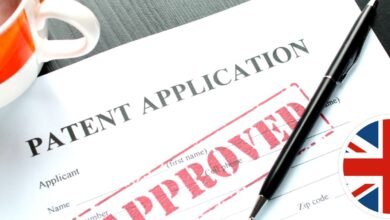How to Handle Medical Billing and Coding: A Beginner’s Guide
Discover essential skills and tips for medical billing and coding beginners. Learn coding systems and HIPAA compliance in healthcare administration.

The healthcare system’s vital components of medical billing and coding make sure that healthcare practitioners are fairly compensated for their services. We’ll go over the basics of medical billing and coding in this beginner’s tutorial, explaining what these jobs include and why they’re so important in healthcare administration.Medical billing in healthcare settings entails the conversion of medical treatments into standardised codes for payment by insurance companies.
However, medical coding links these codes to patient diagnoses and treatments, guaranteeing seamless claims processing and accurate invoicing. Healthcare practitioners must comprehend these procedures in order to manage the intricacies of payment and preserve their practices’ financial stability. The goal of this book is to demystify these positions by providing information on how novices can begin effectively learning medical billing and coding.
How to Handle Medical Billing and Coding
Understanding the Basics
Medical billing involves generating invoices for healthcare services rendered to patients. On the other hand, medical coding assigns specific codes to diagnoses and procedures for accurate billing and insurance claims processing.
Difference Between Medical Billing and Coding
Medical billing focuses on creating and submitting claims to insurance companies or patients, while medical coding involves translating medical reports into codes used by insurance companies for reimbursement purposes.
Key Responsibilities
Both roles require attention to detail and adherence to medical and insurance guidelines to prevent billing errors and ensure proper reimbursement.
Essential Skills for Medical Billing and Coding
Knowledge of Medical Terminology
Understanding medical terminology is crucial for accurately assigning codes to diagnoses, procedures, and treatments.
Attention to Detail
Precision is key in medical billing and coding to avoid errors that could lead to claim denials or delays in reimbursement.
Understanding of Coding Systems
Familiarity with coding systems such as ICD-10-CM (International Classification of Diseases, 10th Edition, Clinical Modification) and CPT (Current Procedural Terminology) is essential for proper code assignment.
Analytical Skills
Ability to analyze medical records and documentation to extract pertinent information for coding purposes.
Ethical Standards
Adherence to ethical guidelines and confidentiality requirements, including HIPAA (Health Insurance Portability and Accountability Act) regulations, to protect patient information.
Computer Proficiency
Competence in using electronic health records (EHR) systems, billing software, and databases to input and retrieve medical information accurately.
Communication Skills
Effective communication with healthcare providers, insurance companies, and patients to clarify information and resolve billing inquiries.
Problem-Solving Abilities
Capacity to identify and resolve coding discrepancies or billing issues promptly to ensure accurate claims submission.
Time Management
Efficient management of tasks and prioritization of workload to meet deadlines for claim submissions and follow-ups.
Continuous Learning
Commitment to ongoing education and staying updated with changes in coding guidelines, healthcare laws, and insurance policies to maintain proficiency in the field.
Steps to Successful Medical Billing
Gathering Patient Information
Begin by collecting patient demographics, insurance details, and medical records necessary for billing.
Assigning the Correct Codes
Use standardized code sets such as ICD (International Classification of Diseases) and CPT (Current Procedural Terminology) to accurately describe diagnoses and procedures.
Submitting Claims to Insurance Companies
Ensure all required information is included in claims submissions to expedite reimbursement and reduce claim denials.
Common Challenges in Medical Billing and Coding
Denials and Rejections
Address common issues like incorrect coding, insufficient documentation, or eligibility issues promptly to prevent claim denials.
Handling Billing Disputes
Resolve disputes with insurers or patients regarding billed amounts or coverage discrepancies through clear communication and documentation.
Tools and Software for Medical Billing and Coding
Overview of Popular Billing Software
Explore software solutions like Epic, Cerner, or Meditech that streamline billing processes and enhance accuracy.
Benefits of Using Electronic Health Records (EHR)
EHR systems integrate patient records with billing systems, improving efficiency and reducing errors in medical billing and coding.
Compliance and Ethics in Medical Billing
Importance of HIPAA Compliance
Adhere to HIPAA (Health Insurance Portability and Accountability Act) regulations to protect patient confidentiality and ensure secure handling of medical information.
Ethical Standards for Billing Practices
Maintain ethical standards by accurately representing services rendered and avoiding fraudulent billing practices.
Career Opportunities in Medical Billing and Coding
Job Outlook and Demand
The demand for skilled medical billers and coders is projected to grow as healthcare services expand and insurance regulations evolve.
Training and Certification Options
Consider certifications such as Certified Professional Coder (CPC) or Certified Medical Reimbursement Specialist (CMRS) to enhance career prospects and credibility.
Tips for Success in Medical Billing and Coding
Continuous Education
Stay updated with the latest coding updates, billing regulations, and industry trends through workshops, seminars, and online courses.
Attention to Detail
Accuracy is paramount in coding and billing. Double-check codes and patient information to avoid errors that could lead to claim denials.
Time Management
Develop efficient workflows to handle tasks promptly and meet deadlines for claim submissions and follow-ups.
Medical Terminology Mastery
Familiarize yourself with medical terms and abbreviations to accurately assign codes and understand medical reports.
Software Proficiency
Become proficient in using billing software and electronic health records (EHR) systems to streamline processes and reduce paperwork.
Ethical Practices
Adhere to professional ethics and billing guidelines, ensuring all claims accurately reflect services provided and comply with regulations like HIPAA.
Communication Skills
Effectively communicate with healthcare providers, insurance companies, and patients to clarify billing issues and ensure accurate information exchange.
Problem-Solving Abilities
Develop critical thinking skills to resolve billing discrepancies and handle claim rejections or disputes effectively.
Audit Readiness
Maintain organized records and documentation to facilitate audits and ensure compliance with regulatory requirements.
Stay Updated with Insurance Policies
Understand different insurance plans, coverage limitations, and reimbursement policies to facilitate accurate claim submissions.
Team Collaboration
Collaborate with healthcare providers, billing specialists, and administrative staff to streamline billing processes and resolve complex cases.
Credentialing and Certification
Obtain relevant certifications such as Certified Professional Coder (CPC) or Certified Medical Reimbursement Specialist (CMRS) to enhance credibility and career advancement.
Patient Advocacy
Advocate for patients by ensuring they understand their billing statements, assisting with insurance claims, and addressing billing inquiries compassionately.
Network within the Industry
Attend industry conferences, join professional associations, and engage in networking opportunities to stay informed and build relationships within the healthcare community.
Seek Feedback and Continuous Improvement
Solicit feedback from supervisors, colleagues, and clients to identify areas for improvement and enhance your skills in medical billing and coding.
Read More: How to Improve Patient Care: Best Practices for Healthcare Professionals
Conclusion
FAQs
What qualifications do I need to become a medical biller or coder?
To start, you typically need a high school diploma or equivalent. Certification programs and on-the-job training can further enhance your skills.
How do I handle denied insurance claims?
Review the reason for denial, correct any errors, and resubmit with additional documentation if necessary. Appeals processes can also be utilized.
What are the benefits of electronic health records in billing?
EHRs streamline documentation and billing processes, reducing errors, improving efficiency, and enhancing patient care coordination.
How can I stay updated with changes in medical billing codes?
Join professional associations, attend seminars/webinars, and subscribe to industry publications for the latest updates and training opportunities.
Is medical billing and coding a good career choice for the future?
Yes, as healthcare expands and regulations evolve, the demand for skilled medical billers and coders is expected to grow, offering stable career opportunities.











